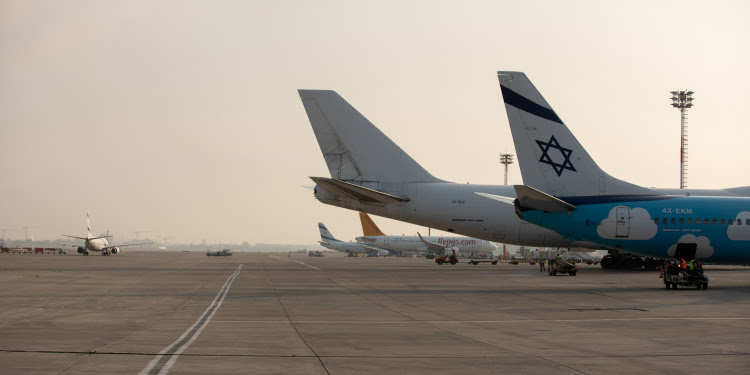‘In Israel, I Feel Like I’m Treated Equally’
The Fellowship | November 1, 2019

Until I was eight years old, I didn’t know that I was Jewish.
I was born to Jewish parents, but in the Soviet Union they preferred to keep a low profile. They never discussed my ethnicity with me until they saw me writing “Russian” in the “ethnicity” field of some questionnaire.
During the years that followed, I had a lot of opportunities to explore my Jewish identity. I sang in a synagogue choir, studied in a Jewish school, and took part in Jewish cultural activities at the local Jewish Community Center (JCC). In fact, my personal exhibit at St. Petersburg JCC became my farewell party. The opening happened just three days prior to my aliyah (immigration to Israel). But even with all of that, I adopted my parents’ practice of keeping a low profile.
I ran into awkward situations. I remember one happened at my high school. I had smart and highly intelligent classmates, but they were shocked to find out I was Jewish.
Being Jewish in Russia made you different, and one could easily hear even from a close friend something like, “You’re a good guy, despite being a Jew!” Life there is never easy for anyone who’s out of the mainstream, whether due to physical abilities, religion, skin color, or whatever else. Wanting to be treated as equal was one of the reasons I began considering aliyah.
Another reason was the Soviet mindset, which we ran into on a daily basis. This was like post-traumatic stress disorder that could be found in the entire population of a huge country that had been through too much to stay sane: revolution, civil war, Stalin’s oppression, world wars, oppression of the Soviet regime, and the depressive years that followed after the country fell apart. My wife and I wanted our newborn child to adopt a different mindset: healthier, more caring, more tolerant, more flexible, and less fearful, egotistic, and submissive. That change in mindset finally came once we were living in Israel.
In my professional life, I needed a big change as well. I remember our aliyah flight approaching Tel Aviv. The bright blue Mediterranean Sea was beneath us, and I thought, “Here is the endless sea of opportunities. I wonder where it’s going to take me?”
This feeling of complete freedom of choice was amazing. It felt great to give a fresh start to my life at the age of 30. My wife, a high-level scientific scholar, felt the same. She was tired of the institutionalism of the scientific world. After a few years in Israel, she found herself studying and then working in a completely different field, computer programming.
Once you arrive in Israel, you get asked about your profession approximately 55 times a day. Everyone wants to know who you are and what you do. You hear this question from cab drivers, random people at a laundromat, neighbors, doctors, teachers of your kids. This was an opportunity for me to practice saying aloud: “I’m a photographer!” I could forget about any of my other jobs which I ever had and just focus on the job that was and is my passion.
Eventually, I drifted from photojournalism to humanitarian photography, and I had no doubt that I had found my very own bay in that proverbial sea of opportunities. I dropped anchor and felt so perfectly fit for my new life. In Russia the culture of philanthropy is in its early stages, and making a living being a photographer in this field is out of the question. This opportunity opened to me only after I made aliyah.
In Israel, I feel like I’m treated equally. I feel blessed having my dream job. I have my ups and downs, of course, but every time I’ve felt like I was hitting the bottom, I used it as a firm base to push back.
This became especially clear to me one night when I was literally down after a car crashed into my motorbike. Strangers who were present at the scene gathered around me to provide support practically even before I hit the ground! Someone held my hand and talked to me, urging me not to close my eyes. Someone collected my belongings that were spread all over the highway, while someone else called an ambulance. In this extreme situation I suddenly understood the essence of the Israeli people. Instead of being in pain after a road accident, I felt inspired.
In Israel, I’ve gotten the opportunity to meet people from different backgrounds, from different countries. The world has expanded for me. For a year we lived in a tiny village on a hilltop in the Judean desert. Every night as the sun was going down and millions of stars were revealing themselves in the sky, I felt not only a part of a bigger world, but a part of endless universe.
– Arik Shraga
